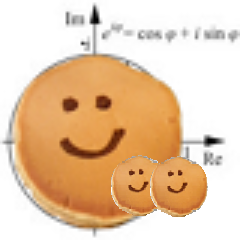結果
| 問題 | No.181 A↑↑N mod M |
| コンテスト | |
| ユーザー |
 __math __math
|
| 提出日時 | 2015-04-06 01:34:49 |
| 言語 | PyPy2 (7.3.20) |
| 結果 |
WA
|
| 実行時間 | - |
| コード長 | 1,591 bytes |
| 記録 | |
| コンパイル時間 | 145 ms |
| コンパイル使用メモリ | 77,712 KB |
| 最終ジャッジ日時 | 2025-12-03 14:35:18 |
|
ジャッジサーバーID (参考情報) |
judge5 / judge2 |
(要ログイン)
| ファイルパターン | 結果 |
|---|---|
| sample | AC * 6 |
| other | AC * 28 WA * 9 |
ソースコード
#coding=utf-8
import time
import math
from fractions import gcd
def primes(n):
return list(i_primes(n))
def i_primes(n):
p = [True] * (n+1)
p[0] = p[1] = False
max = int(math.sqrt(n+1))
for i in xrange(2,max):
if p[i]:
yield i
for j in xrange(i*2,n+1,i):
p[j] = False
for i in xrange(max,n+1):
if p[i]: yield i
pr = primes(10**5)
def euler_phi(n):
ret = n
for i in pr:
if i*i > n: break
if n % i == 0:
while n%i==0:
n/=i
ret = ret/i*(i-1)
if n != 1:
ret = ret/n*(n-1)
return ret
def p_factor(n):
ret = []
for p in pr:
if p * p > n: break
if n % p == 0:
ret.append(p)
while n % p == 0: n /= p
return ret
def tetration(a,b,mod):
if b == 0: return 1
return pow(a,tetration(a,b-1,euler_phi(mod)),mod)
def tetration2(a,b,mod):
if b == 0 or a == 1:
return 1
ret = 1
while ret < 20 and b > 0:
ret = pow(a,ret)
b -= 1
if b == 0:
return ret
g = gcd(a,mod)
g_factor = p_factor(g)
a_rem = a
a_div = 1
for gf in g_factor:
while a_rem % gf == 0:
a_rem /= gf
a_div *= gf
dp = [mod]
for i in xrange(1,b):
dp.append(euler_phi(dp[i-1]))
if dp[-1] == 1:
break
for i in reversed(dp):
ret = pow(a_rem,ret,i)
return ret * a_div % mod
def main():
a,n,m = map(int,raw_input().split())
print tetration2(a,n,m) % m
main()
